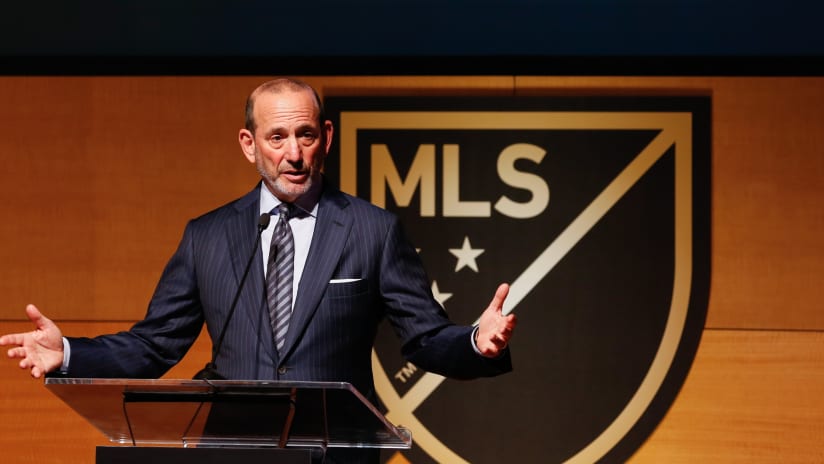The MLS is Back Tournament wraps up on Tuesdya with the final, but MLS action will be back less than 24 hours later when FC Dallas host Nashville SC in the first MLS game to be played in market since league action was suspended due to the COVID-19 pandemic on March 12.
MLS Commissioner Don Garber spoke to media about the return plan, explaining how the league used learnings from the Orlando tournament to design a protocol for the return to matches in home stadiums after consultations with medical experts, infectious disease advisors – including MLS Players Association advisors – and health authorities and government officials in local markets. All teams will also be traveling via chartered flights and buses for shorter trips, and in most markets, visiting teams will be able to arrive on matchday and depart immediately following the game.
Similar to the Orlando tournament, the protocol will include regular testing of players, coaches and staff every other day and the day before matches.
“A big part of ensuring that we’ll be able to keep everyone safe is not just what we do with testing, it’s what our players and staff do away from the playing field and away from their facilities,” Garber said. “Most of all, it’s really important that everyone involved – and that’s not just our players and staff, it’s all of us – avoid situations where the risk of contracting the disease is heightened and paying attention to that.”
Garber said that the league is currently working with the MLS Players Association on a policy for player conduct outside of training and matches.
It’s all part of a “new normal” that Garber said other sports, leagues and businesses are pursuing as the world navigates the challenges of the pandemic.
And the Commissioner made it clear that it won’t all be smooth sailing, pointing out how MLS had to work through withdrawing FC Dallas and Nashville SC due to positive tests before finishing the MLS is Back tournament with only two other confirmed positive COVID-19 tests.
“We understand that getting back to play is going to have some challenges,” Garber said. “We’re aware of those challenges, we’re prepared for it, understanding that it’s not going to be easy. We know that we might have issues that are going to disrupt us and force us to postpone games. We’re aware of the need to be flexible and we are aware that we’re entering a new normal for our industry.
“What we’re doing here is getting it started,” Garber continued. “We believe we have a good plan and we believe our players and our staff are focused on adhering to our protocols and if we’re able to do that we should be able to get our games in. If we can’t do that in a way that’s safe and one that’s ensuring the health of our players, then we’ll have to address it. If it doesn’t work then we won’t move forward.”
Given the limited schedule windows for potential postponements, Garber acknowledged competitive balance issues and the potential of using points per game as opposed to total points to determine playoff qualifiers in the case clubs play an uneven number of games.
The expansion of the postseason from 14 teams to 18 teams was influenced by the competitive balance and the fewer regular season matches (23 vs. typical 34-match season). “We thought it was appropriate and fair to have even more teams qualify because the season is unique,” Garber said.
“In the event we have challenges, we’re going to have to assess where we are. And if we can’t go forward, we won’t,” Garber said about the MLS regular season. “But the alternative is to make the decision to not go forward [with league play] and operate out of fear as opposed to operating out of strength and out of confidence.”




